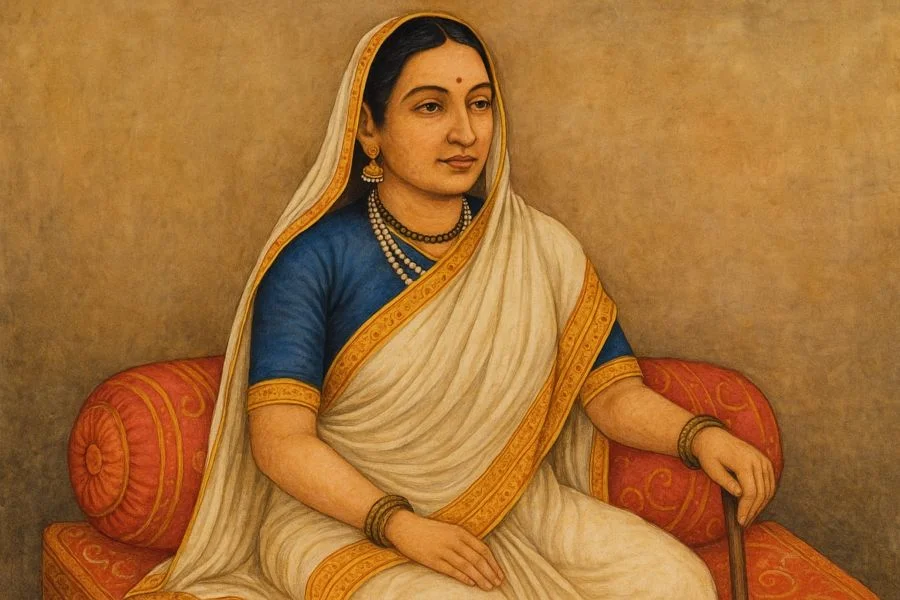31st May 2025 12:50 PM
Ahilyabai Holkar (31 May 1725 – 13 August 1795) was a visionary ruler of the Malwa region within the Maratha Confederacy, celebrated for her enlightened governance, social reforms, and cultural patronage. Born in the village of Chondi (now in Ahmednagar district, Maharashtra), she rose from humble beginnings to become one of India’s most revered queens.

👑 Early Life and Rise to Power
Ahilyabai was born into a Marathi Hindu family; her father, Mankoji Shinde, was the village Patil. Despite societal norms that restricted women’s education, her father taught her to read and write. At the age of eight, her virtues caught the attention of Malhar Rao Holkar, a commander in the Maratha army, who arranged her marriage to his son, Khanderao Holkar.   
Tragedy struck when Khanderao died in battle in 1754. Ahilyabai contemplated committing sati, but her father-in-law dissuaded her and mentored her in statecraft and military affairs. Following the deaths of Malhar Rao in 1766 and her son Male Rao in 1767, Ahilyabai assumed the throne, ruling from 1767 until her death in 1795. She established Maheshwar (in present-day Madhya Pradesh) as the capital of the Holkar dynasty.   
🛕 Governance and Cultural Contributions
Ahilyabai’s reign is noted for its administrative efficiency, justice, and public welfare. She transformed Indore into a prosperous city and promoted trade and agriculture. Her commitment to cultural and religious restoration led to the construction and renovation of numerous Hindu temples across India, including the Kashi Vishwanath Temple in Varanasi in 1780 and the Somnath Temple in 1782.
She also established Dharmshalas (rest houses) and wells to aid pilgrims and travelers, reflecting her dedication to public service.
👩👧👦 Social Reforms and Women’s Empowerment
Ahilyabai was a pioneer in women’s empowerment. She appointed women to administrative positions and supported women’s education and welfare. Her policies promoted social harmony and justice, setting a precedent for future reforms. 
🧵 Patronage of Arts and Crafts
Under her patronage, Maheshwar became a center for handloom weaving. She invited weavers from Surat and Mandu to produce the famed Maheshwari sarees, known for their unique designs and craftsmanship. This tradition continues today, with organizations like the Rehwa Society working to preserve and promote this heritage.
🌟 Legacy and Honors
Ahilyabai Holkar’s legacy endures through various institutions and memorials named in her honor:
• Devi Ahilya Bai Holkar Airport in Indore.
• Devi Ahilya Vishwavidyalaya, a university in Indore.
• Statues and commemorative stamps issued by the Government of India. 
Her life and achievements continue to inspire, with recent celebrations marking her 300th birth anniversary, including cultural programs and seminars highlighting her contributions to Indian society.
Ahilyabai Holkar’s reign exemplifies the ideals of good governance, social justice, and cultural renaissance, making her a timeless icon in Indian history.

